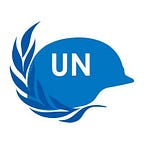Strengthening the conduct of peacekeeping personnel
By Minji Ko
Walking the path together with Member States: from commitments to bold actions
The highest standards of conduct are a critical aspect of implementing the mandates for United Nations peace operations. In his video message opening a recent meeting of Member States on strengthening the conduct of peacekeeping personnel, the United Nations Secretary-General, António Guterres, stressed that “Member States are our vital partners” to “strengthen accountability for the conduct of peacekeeping personnel.”
During this virtual event attended by close to 80 representatives of Permanent Missions and national authorities, António Guterres asked the member states to “continue to make progress on this collective priority by learning from the lessons of the past and building on them”. “We need to honour our values with bold action to ensure accountability for United Nations peacekeeping personnel who are guilty of misconduct”, he added.
Member States have integrated and institutionalized good practices into national legislative frameworks and procedures and implemented new and innovative measures, from prevention to enforcement and remedial action. In their partnership with the UN, countries including those sending troops and police personnel to our peace operations, have committed to preventing and addressing misconduct when it occurs. 103 Member States have signed a Voluntary Compact on Eliminating Sexual Exploitation and Abuse with the Secretary-General, joining the Secretary-General’s Circle of Leadership on the prevention of and response to sexual exploitation and abuse in United Nations operations or by contributing to the Trust Fund in support of victims.
“We need good practices of Member States so that we can collectively improve,” stated Catherine Pollard, the Under-Secretary-General for Management Strategy, Policy and Compliance, in her opening statement at the 28 June 2021 meeting, which was held under the umbrella Action For Peacekeeping initiative.
PREVENTION
Prevention measures include robust risk management and raising awareness of the values and standards to be respected by UN personnel.
India integrates the UN e-learning course on prevention of misconduct including sexual exploitation and abuse in all uniformed personnel trainings before they are deployed to our peace operations.
Rwanda implements rigorous command and control, including movement monitoring at its field bases and has institutionalized daily reporting on occurrences of misconduct.
ENFORCEMENT
Enforcement measures are critical to hold personnel accountable for breaching UN standards of conduct. With the active partnership with the UN, Member States are working continuously to strengthen enforcement, which is, at its core, a question of accountability.
Ghana conducts joint investigations on alleged misconduct cases with the Office of Internal Oversight Services to conduct timely, effective, and reliable investigations.
Morocco implemented After Action Reviews for all misconduct cases to thoroughly understand the circumstances surrounding allegations. The lessons learned from each case help develop responsive risk management.
South Africa conducts courts-martial in mission areas on alleged misconduct cases and, when not possible, in South Africa. Such in-situ courts-martial ensure victims and affected communities can participate and directly see justice being served.
REMEDIAL ACTION
Upholding and respecting the rights of victims is at the core of the Organizations’ approach to sexual exploitation and abuse by UN personnel, as is providing assistance and support to victims and children born of these acts
Victim assistance includes medical care, psychosocial support, and provision of material care such as personal care dignity kits. Additionally, where a child has been born as a result of sexual exploitation and abuse, the UN and Member States work together to facilitate the pursuit of paternity and child support claims to ensure fathers fulfill their duties, including by enabling provision of legal assistance.
Projects implemented through the Trust Fund in support of victims of sexual exploitation and abuse, with the contribution of 24 Member States, have played a pivotal role in addressing the needs of victims, including through training and vocational skills.
Opportunities to engage in income generating activities can help victims combat stigmatization, restore their dignity, and help to promote reintegration within their communities.
The UN and Member States will continue to collaborate on strengthening the conduct and discipline of peacekeepers.
Communicating on these good practices can be a powerful tool to ensure they are mainstreamed across all Member States. To this effect, Under-Secretary-General for Peace Operations, Jean-Pierre Lacroix, encouraged “all Member States to continue to reach out to develop communications with us on their good practices.” Information on good practices will soon be available on the UN Conduct in Field Missions website.
Over the last months, Member States were asked to complete a survey with information on their good practices, identifying more than 117 distinct good practices by over 35 Member States. The survey remains open to continue this critical information-collection and sharing effort.
The author works with the Strategic Communications Section in the Department of Peace Operations.
